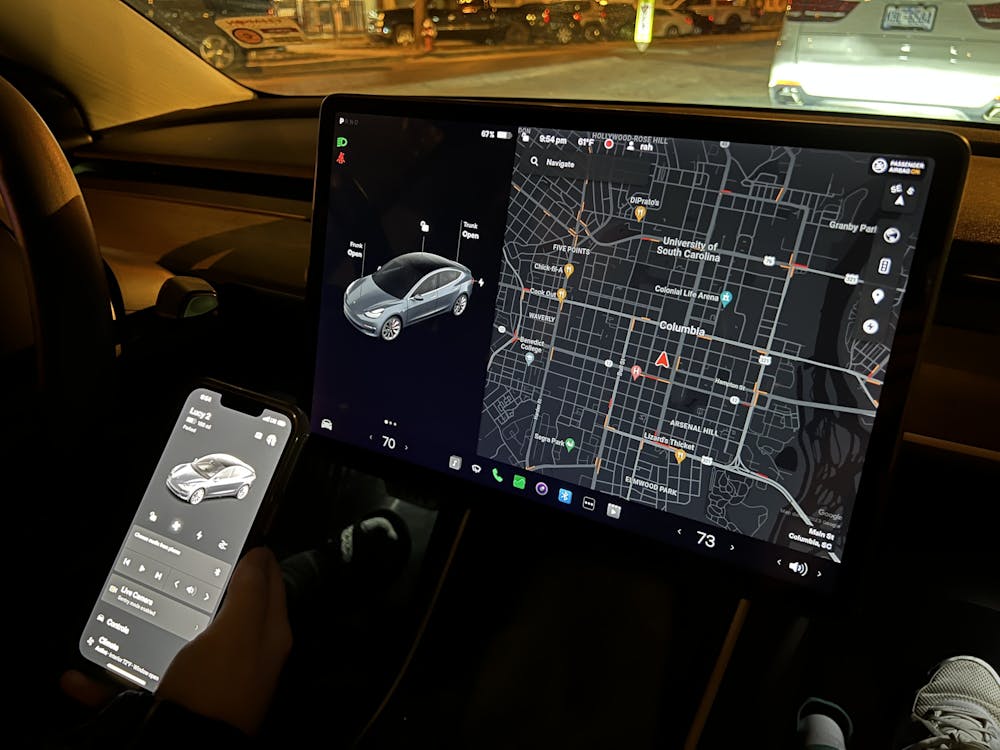A recent growth in South Carolina's electric vehicle industry is resulting in a shortage of charging options for Columbia drivers.
There are currently 385 publicly accessible charging stations statewide, with 21 being in Columbia. Greenville currently has 32, and Charleston has 37, according to the South Carolina Department of Commerce.
For drivers, wait times for chargers could become a bigger issue as sales increase. According to the Department of Commerce, electric vehicle ownership in the state has seen a 69.5% increase from 2020 to 2021. In addition, as the electric vehicle industry grows nationwide, the IRS offers a clean vehicle tax credit of up to $7,500 for purchasing an electric vehicle on or after Jan. 1, 2023, further boosting sales.
The installation of chargers, outside of public parking garages, is currently driven by private sectors that are not under direct government control. Housing providers often include them as amenities for their residents.
According to Ryan Coleman, the director of economic development for the City of Columbia, adding new chargers will not be a solution driven by the government, similar to how there are no state-owned gas stations. However, Coleman said, he expects more and more gas stations will soon be installing chargers to boost sales from a larger population of drivers.
"We've built charging stations into some of our parking garages," Coleman said. "That's what we own and we control, and we try to provide that option where we can, particularly in new things that we put out there, but we're not building a lot of garages right now."
Despite Gov. Henry McMaster recently creating resources for the economic development of the electric vehicle industry, South Carolina still doesn’t require housing providers to install chargers or the city to have a certain percentage of parking spots compatible with charging like states like California do.
"It would be a little easier to read the tea leaves if we had legislation in place. But, South Carolina as a state is kinda pretty hands-off," Coleman said. "I don't think you're going to see the state come in."
Ty Davenport, the deputy director of economic development for Richland County, said the city should look into adopting a percentage requirement for electric vehicle-compatible parking spots.
“I think people more and more are accepting of the electric vehicle as an option versus the internal combustion (engine), and we're going to have to get out in front of it as a nation, as a state, as a city," Davenport said. "It’s just the way it is.”

Columbia resident Laura Streit has been driving a Model 3 Long Range Tesla in Columbia since 2020. Streit said that it was rare to find another Tesla on the road back then, but now, they've greatly increased.
At times, she said she has had to wait an additional 20 minutes to use a charging station on top of the normal 40 it takes to get a full charge.
"It's just kind of annoying when I don't think I've seen any new superchargers be built, at least in the Columbia area, since I moved here," Streit said.
Streit lives in the city, but if she had a longer commute, she said she could see it being much more inconvenient. Her options are more limited because she is not able to charge her car overnight, so she relies on publicly accessible chargers. Some electric vehicle manufacturers offer free installation of at-home chargers, but not everyone has that access.
Coleman said that the industry's rapid growth creates great opportunities for development since companies are just starting to scratch the surface on how they can harness and store energy. He believes that as more people start to buy electric vehicles and use chargers, the cost of producing and installing them will go down, and their development will become more widespread.
"It's like a big case study happening in real-time," Coleman said.

